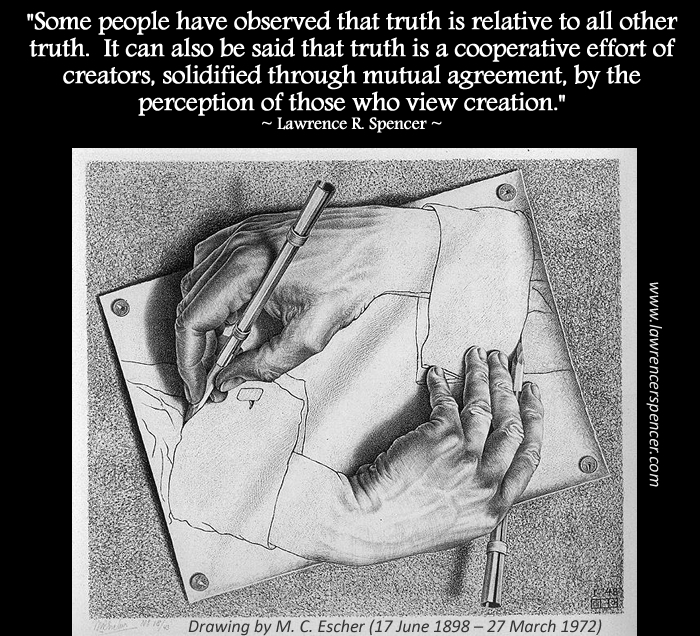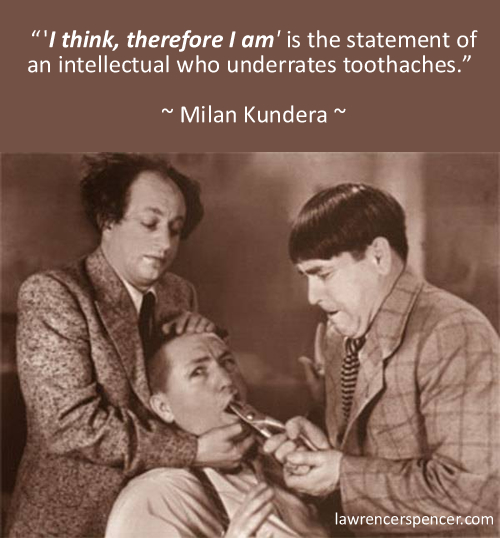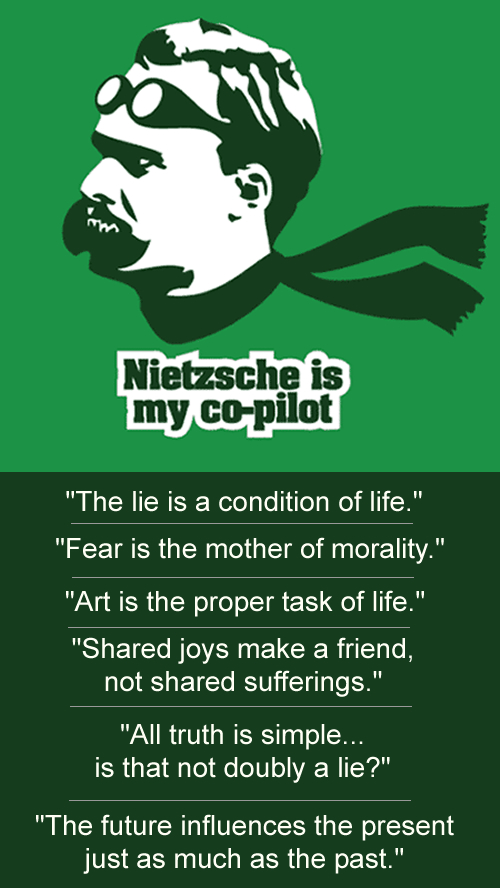Republished by Blog Post Promoter

“Some people have observed that truth is relative to all other truth. It can also be said that truth is a cooperative effort of creators, solidified through mutual agreement, and the perception of those who view creation.”
~ Lawrence R. Spencer ~
Definition: “The simulacrum has long been of interest to philosophers. In his Sophist, Plato speaks of two kinds of image making. The first is a faithful reproduction, attempted to copy precisely the original. The second is intentionally distorted in order to make the copy appear correct to viewers. He gives the example of Greek statuary, which was crafted larger on the top than on the bottom so that viewers on the ground would see it correctly. If they could view it in scale, they would realize it was malformed.
This example from the visual arts serves as a metaphor for the philosophical arts and the tendency of some philosophers to distort truth so that it appears accurate unless viewed from the proper angle. Nietzsche addresses the concept of simulacrum in the Twilight of the Idols, suggesting that most philosophers, by ignoring the reliable input of their senses and resorting to the constructs of language and reason, arrive at a distorted copy of reality.
French social theorist Jean Baudrillard argues that a simulacrum is not a copy of the real, but becomes truth in its own right: the hyperreal. “The simulacrum is never that which conceals the truth. It is the truth which conceals that there is none. The simulacrum is true.” Precession of the Simulacra, Jean Baudrillard
(Source: Wikipedia.org)


